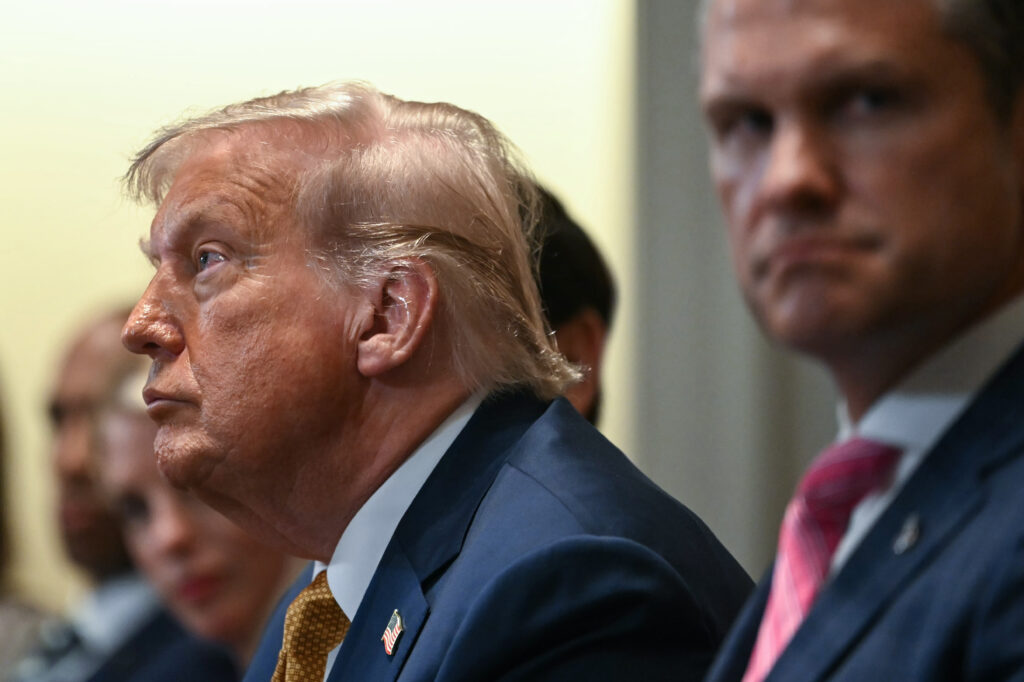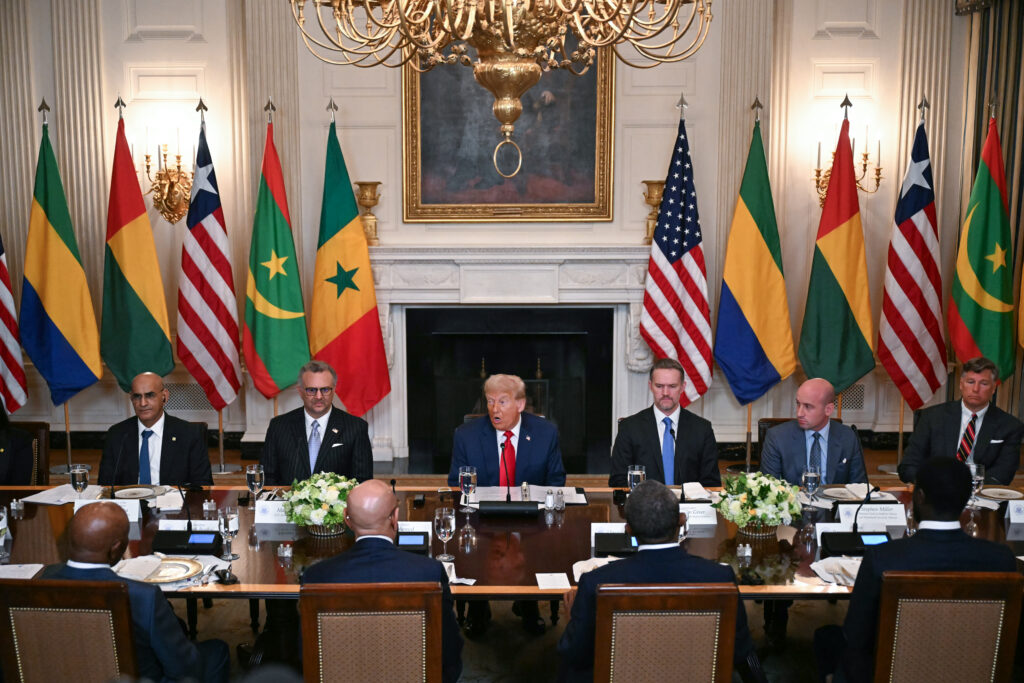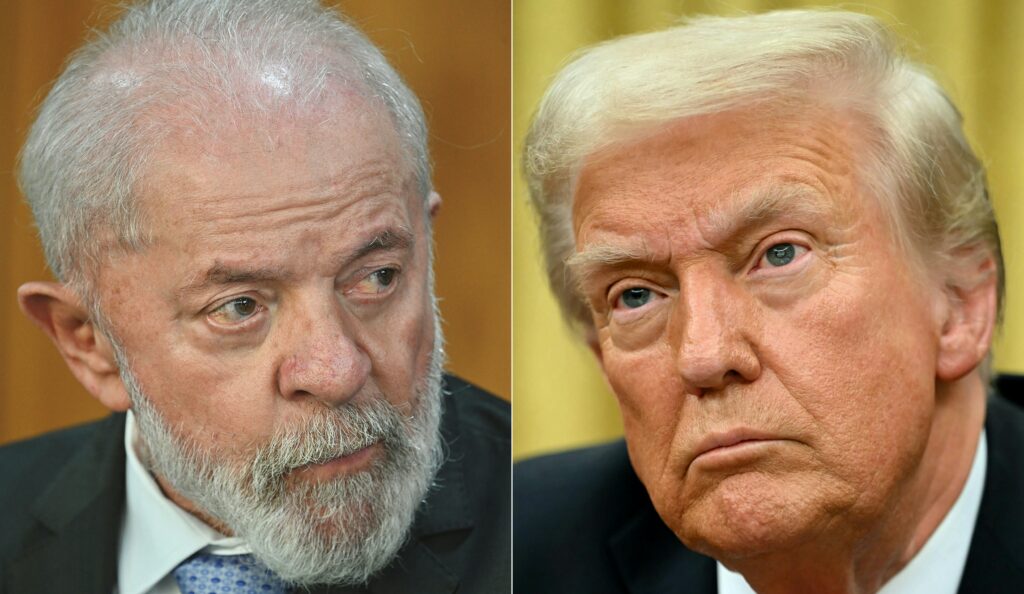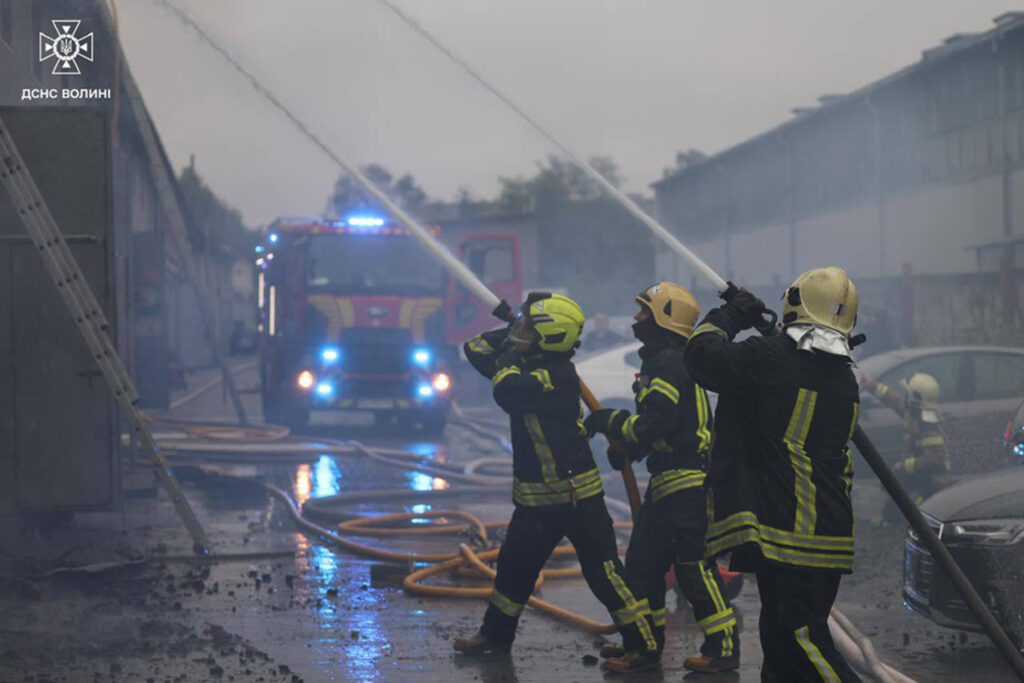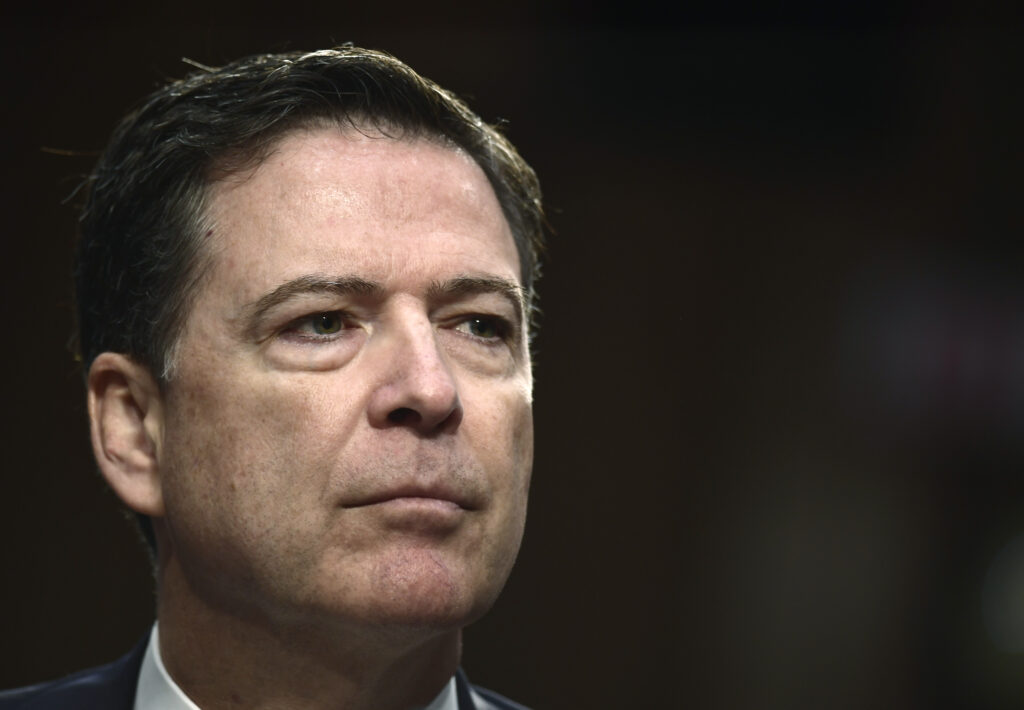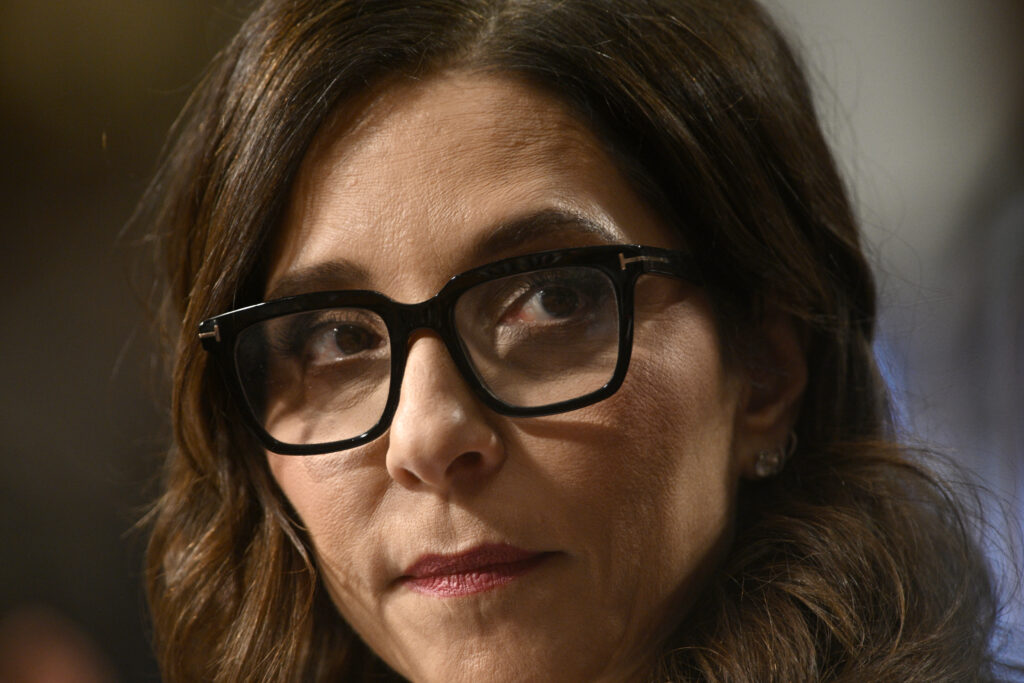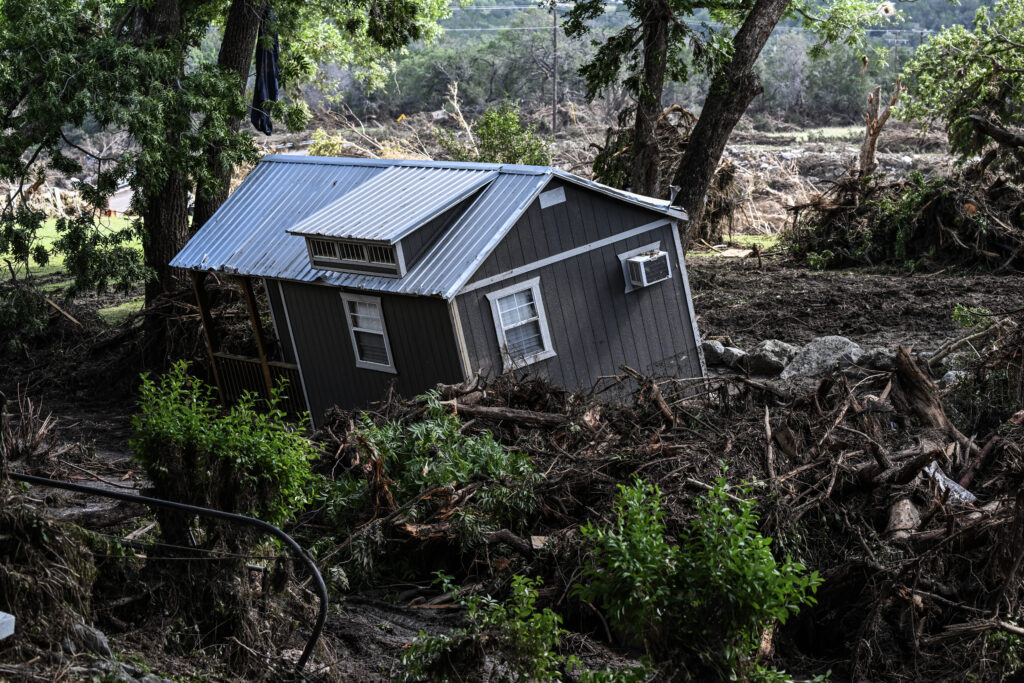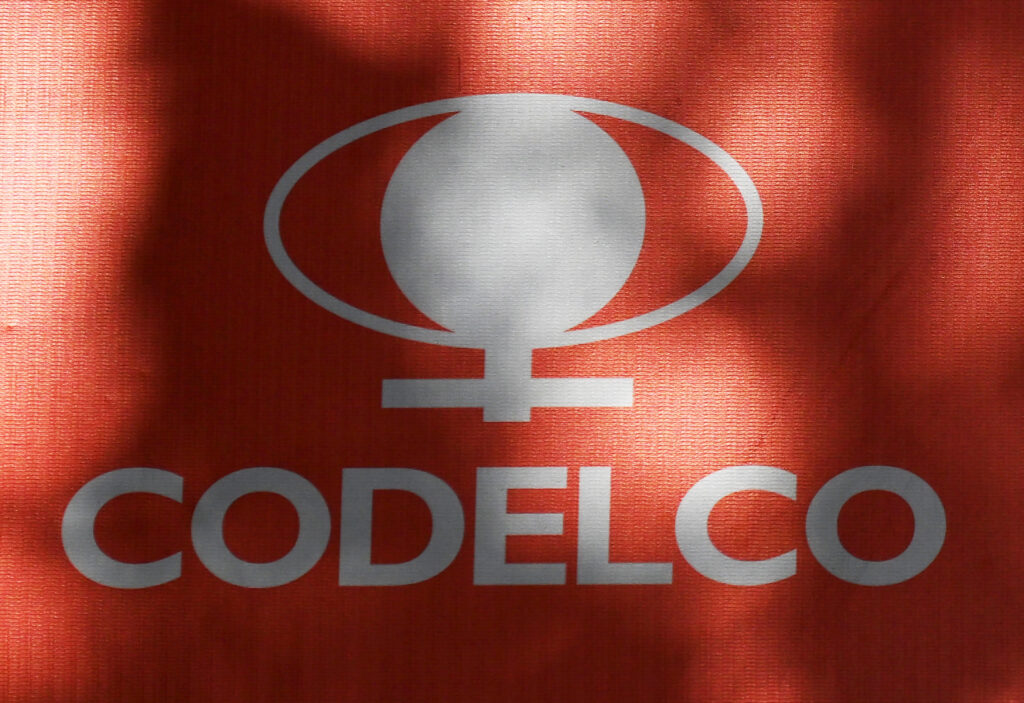Trump broadens push for tariff deals, unveils 50% Brazil levy
US President Donald Trump announced a 50 percent tariff Wednesday targeting Brazil as he blasted the trial of the country’s ex-leader, while widening a push to secure more bilateral trade deals with other partners.In a letter addressed to President Luiz Inacio Lula da Silva, Trump criticized the treatment of Jair Bolsonaro as an “international disgrace,” adding that the trial “should not be taking place.”He also said Washington would launch an investigation into Brazil’s trade practices.The latest tariff threat came after Brazil said it had summoned the US charge d’affaires in a diplomatic row over Trump’s earlier criticism of the coup trial of Bolsonaro.Bolsonaro denies he was involved in an attempt to wrest power back from Lula in an alleged coup plot prosecutors say failed only for a lack of military backing.The 50 percent US tariff on Brazilian goods will take effect August 1, Trump said in his letter, mirroring a deadline that dozens of other economies face.While Trump has started to issue letters to trading partners this week as he ramps up pressure towards more deals, he has focused on partners with which his country runs significant deficits.Brazil had not been among those threatened with these higher duties previously. The United States runs a goods trade surplus instead with Brazil.- Escalation threats -Trump’s message to Lula was the latest in more than 20 such letters the US president has released since Monday, setting out tariff rates as Washington tries to bring about more trade pacts.On Wednesday, Trump had addressed letters to leaders of the Philippines, Sri Lanka, Brunei, Algeria, Libya, Iraq and Moldova, spelling out duties ranging from 20 percent to 30 percent that would also take effect on August 1.Similar to a first batch of documents published Monday, the levels were not too far from those originally threatened in April, although some partners received notably lower rates this time.While Trump in April imposed a 10 percent levy on almost all trading partners, he unveiled — and then withheld — higher rates for dozens of economies.The deadline for those steeper levels to take effect was meant to be Wednesday, before Trump postponed it further to August 1.Countries that faced the threats of elevated duties began receiving letters spelling out US tariff rates on their products.In the messages, Trump justified his tariffs as a response to trade ties that he says are “far from Reciprocal.”The letters urged countries to manufacture products in the United States to avoid duties, while threatening further escalation if leaders retaliated.Other countries that have received Trump’s letters include key US allies Japan and South Korea, as well as Indonesia, Bangladesh and Thailand.- EU deal in ‘coming days’? -Analysts have noted that Asian countries have been a key target so far.But all eyes are on the state of negotiations with major partners who have yet to receive such letters, including the European Union.The Trump administration is under pressure to unveil more trade pacts. So far, Washington has only reached agreements with Britain and Vietnam, alongside a deal to temporarily lower tit-for-tat levies with China.Trump on Tuesday said that his government was “probably two days off” from sending the EU a letter with an updated tariff rate for the bloc.An EU spokesman said Wednesday that the bloc wants to strike a deal with the United States “in the coming days,” and has shown readiness to reach an agreement in principle.Apart from tariffs targeting goods from different countries, Trump has rolled out sector-specific duties on steel, aluminum and autos since returning to the White House in January.On Tuesday, Trump said levies were incoming on copper and pharmaceuticals. The planned rate for copper is 50 percent, he added, while pharmaceutical products face a levy as high as 200 percent — but manufacturers would be given time to relocate operations to the United States.
